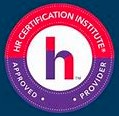Workplace Harassment Prevention: How to Conduct an Internal Harassment and Bullying Investigation
Duration : 90 Minutes

This course, has been approved for 1.5 HR (General) recertification credit hours toward aPHR™, PHR®, PHRca®, SPHR®, GPHR®, PHRi™ and SPHRi™ recertification through HR Certification Institute® (HRCI®).
Diane L. Dee, SPHR, SHRM-SCP,
Diane L. Dee, President and Founder of Advantage HR Consulting, LLC is a senior Human Resources professional with over 30 years of experience in the HR arena. Diane’s background includes experience in HR consulting and training & administration in corporate, government, consulting and pro bono environments.
When an employee complains that he or she is experiencing harassment of any type, the employer has a legal, ethical, and employee-relations obligation to investigate the charges thoroughly. The employer can't decide whether to believe the employee but must take him or her at their word.
If an employer hears rumors that harassment is occurring, the employer must investigate the potential harassment. This may include hearing gossip from other employees, it may involve instances in which non involved employees or friends of the targeted employee bring up the subject with Human Resources to help their coworker or friend who is embarrassed to go to HR. It can also include any instance in which an employee tells HR about questionable behavior that they have witnessed.
These are examples of just how seriously employers must take sexual and any other form of employee harassment that is or may be occurring in their workplace. Assuming the decision is made to investigate the report, there should be protocols in place to get started, including a method for choosing the investigator, assigning the case and tracking and reporting on the investigation.
It's imperative that employers understand how to evaluate the scope of their internal investigations, how to document steps taken along the way, and how to insulate their organization from subsequent lawsuits. Additionally, it's also important for employers to ensure all parties are treated fairly during the process and be sensitive to how the organization's process is communicated and implemented.
While no employer wants to be accused of harassment, all employers need to be armed with the knowledge of how to proceed should they find themselves in the position not having to defend themselves against a harassment charge. Employers must ensure they are properly prepared at the outset of an investigation to conduct effective and legally-compliant investigations into the harassment.
Course Objectives:
More so today than ever, harassment claims in the workplace are a hotbed for litigation and EEOC claims. While no employer wants to be accused of harassment, all employers need to be armed with the knowledge of how to proceed should they find themselves in the position of having to defend themselves against a harassment charge. Employers must ensure they are properly prepared at the outset of an investigation to conduct effective and legal-compliant investigations into harassment.
This presentation will focus on key policies, procedures and training to put in place to try to avoid harassment claims of all types through the use of effective and legal investigations, steps to take to respond to allegations of harassment or improper conduct in the workplace, and proper steps to take once a claim has been filed. The presentation will focus on investigating all types of harassment, as well as common issues that may violate company policy, such as bullying in the workplace.
Participation in this webinar will teach you how to conduct a legally and psychologically effective workplace probe. From fact-finding to conducting interviews and writing reports, this webinar will assist you in gaining the confidence to conduct effective, fair investigations.
Course Outline:
• What Constitutes Harassment?
• Laws that Influence your Investigation
• Making the Decision to Investigate
• Legal Landmines Surrounding Investigations
• What Managers need to know about all Aspects of Handling Harassment Claims
• Creating a Successful Roadmap to your Investigation
• Choosing the Right Investigator
• Interviewing Techniques
• Conducting Effective Interviews
• Evaluating Complainant, Accused, and Witness Credibility
• Understanding the Perspectives of the Complainant and Accused
• Fostering a Perception of Fairness
• Appropriate Handling of Documentation
• Developing Documentation that will stand-up in a Lawsuit
• Making the Appropriate Determination
• Taking Appropriate Action once a Determination has been Made
• Determining corrective actions
• Communicating investigation results with sensitivity and fairness
• Effectively Handling the Impact on your Employees
• Addressing Rumors and Questions in the Aftermath of an Investigation
• Writing a Court-Ready Final Report
• Preventing Retaliation and Future Workplace Misconduct
What You Get:
• Training Materials
• Live Q&A Session with our Expert
• Participation Certificate
• Access to Signup Community (Optional)
• Reward Points
Who Will Benefit:
This webinar will provide valuable assistance to all personnel in:
• Human Resources Specialists and managers
• Supervisors and Managers
• Executives and Business Owners
• In-house counsel
• Human Resources Staff
• HR Analysts
• HR Directors
• Employee Relations Professionals
• Employment Managers/Specialists
• HR Coordinators/Supervisors
Please reach us at 1-888-844-8963 for any further assistance or if you wish to register

100% MONEY BACK GUARANTEED
Refund / Cancellation policyGet In Touch
Similar Trainings
Linking Pay to Performance: Increasing Employee Engagement & Organizational Performance
LIVE : Scheduled on
03-April-2025 :01:00 PM EST
|
